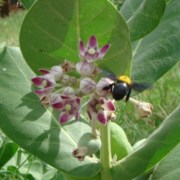Taking Care of the Bees and other Creatures this Fall
Planting Flowers for the Bees
What’s your favorite flower this year? That’s the question our local gardening magazine posed to its readers this issue. Many candidates came to mind, but I realized my criteria in Fall for a good flower is one that blooms late to feed the bees and other pollinators that are still around scrambling for nectar and pollen to sustain them or their babies through winter.
So my favorite flowers right now include the dandelions that have responded to our recent rains with a bloom worthy of Spring. Every time I see a dandelion now, I don’t respond with a desire to pull it, but with a word of encouragement because it’s not a weed when it has a happy bee gorging in the middle of the flower.
Other favorites that are feeding bees and other creatures:
Cosmos are tough annuals, and still blooming despite some frosty weather.
Scabiosa has won my garden awards for several years for being the last flower blooming in November. It’s one flower I keep deadheading instead of leaving the seed because I know it makes new flowers as long as it can.
Violas and Pansies planted now will make flowers to please me and the bees during warm spells this winter.
As always, there is one really important thing pollinators and especially bees need in Fall:
WATER. At my house, the seasonal ditch dried up in August, and standing water is rare in our arid climate. I keep water in the birdbath and in the flat little saucer with pebbles for the bees. I notice signs that other bigger creatures like the squirrels and rabbits and field mice sneak water when I’m not watching from the bird bath top that I left sitting on the ground. I got pretty angry with the ravenous rabbit over-population this year, but when I see one lonely bunny hunkered down in the dry leaves under the trees, I can’t help but leave water out for her. I know I’ll be rewarded with hungry baby bunnies in the Spring, but as the cold winds of Fall send chills through the gardener, my heart goes out to all the creatures who live outdoors during the long winter season.



Leave a Reply
Want to join the discussion?Feel free to contribute!